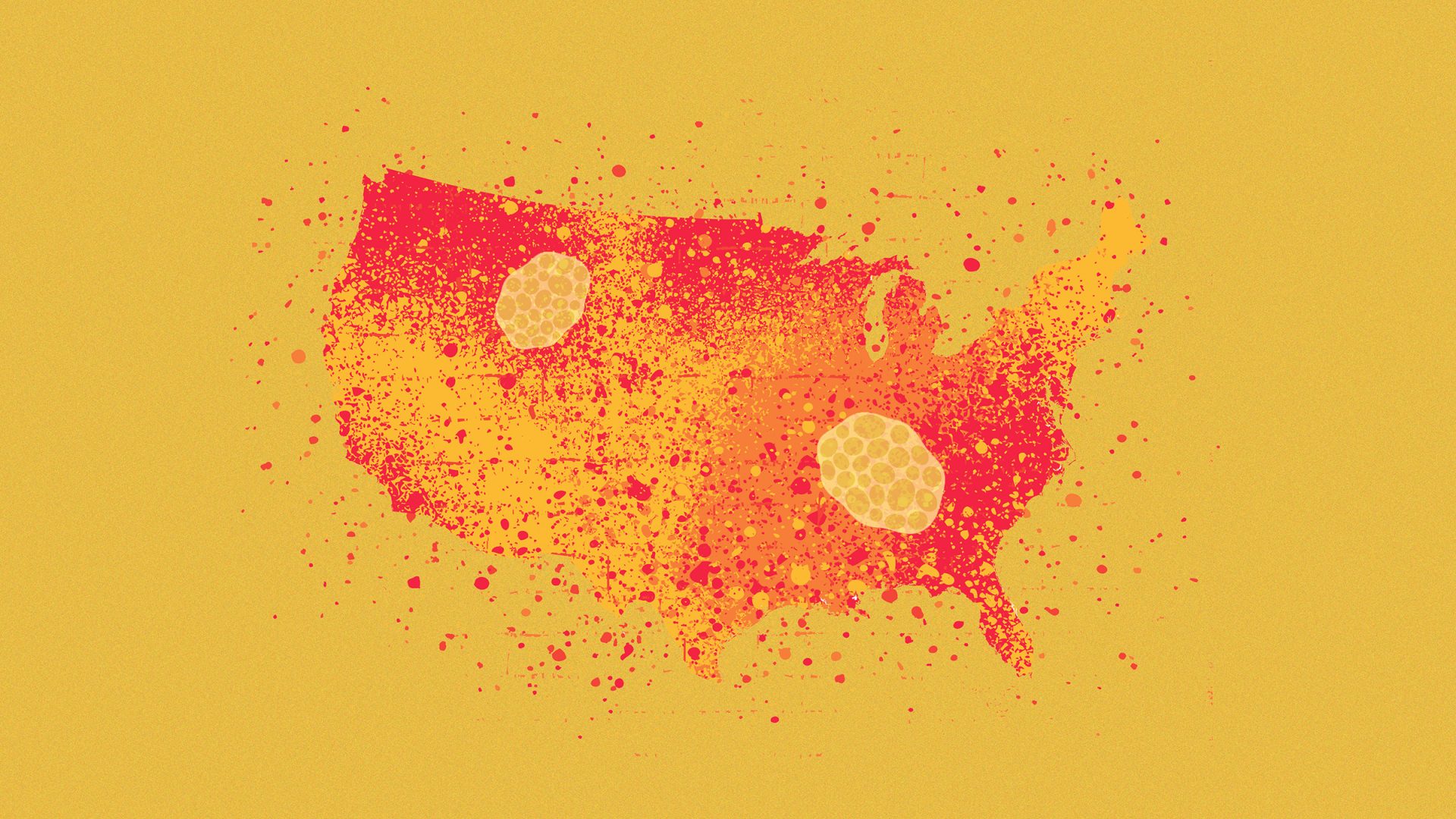The dismantling of US science continues apace. The latest blow is massive cuts to the budget of the National Science Foundation (NSF), which provides funding for just about all areas of science in the country. Incredibly, it seems the Trump administration plans to allow NSF to fund just five areas of science, identified as priorities: artificial intelligence, quantum information science, biotechnology, nuclear energy, and translational science (which converts basic research into applications of human benefit, especially in health). Previously the NSF had 37 divisions, along with an annual budget of $4bn. Trump wants to cut that by 55%.
Simply, thousands of scientists and their projects are finding themselves without federal funds, or soon will. Even those whose grants survive will face intense scrutiny of their compliance with the agency’s “new standards”. To put it another way: American science is facing collapse.
It’s no surprise that many US scientists are looking abroad to continue their research. Some have already moved; others are drawing up plans or exploring options. In a survey conducted by the journal Nature in March, 75% of the 1,600 US researchers polled said they were considering moving their research out of the country. Of course it’s unlikely that anything like that proportion will do so, but the number is worth repeating: despite the immense personal and professional disruption entailed, an astonishing three in four consider that it might be worth the pain. Unsurprisingly, many of those are early-career researchers.
Who can blame them? “This is a critical moment in our careers, and it’s been thrown into turmoil in a matter of weeks,” said one young researcher in the Nature poll, who has had his grant cancelled and is now looking for work in Canada. “Don’t want to leave, but what’s the alternative?”, asked another. Science magazine has presented heartbreaking profiles of younger researchers whose futures currently seem in ruins. One, investigating how social factors influence the healthcare that women in racially diverse communities receive for breast and cervical cancer, has had grants abruptly terminated. “I feel like it’s kind of a personal attack against me [and] the work that I’m doing”, she said.
Another, working on the lung disease Valley Fever, which kills thousands of Americans each year, has had her postdoctoral position terminated. She is now looking for a position in Europe or Canada, which will mean leaving behind friends, networks and family. “It’s like I have to choose between my life and my career,” she said. The jobs platform run by Nature Careers has 32% more applications for jobs abroad submitted by US researchers between January and March 2025 than during the same period in 2024.
Europe is an obvious destination, and European governments seem eager not to pass up the opportunity. While some have publicly deplored the assaults on US science, they can’t be blind to the potential benefit of an influx of expertise. In March, ministers from 13 countries including France, Germany, Spain and Austria signed a letter to the European Commission calling for it to welcome “brilliant talents from abroad who might suffer from research interference and ill-motivated and brutal funding cuts”.
Several universities in France, Belgium and elsewhere have pledged new funds for postdocs, PhD students and others, open to all international scientists, but clearly aimed at the US. The UK will soon announce a £50m scheme of grants and relocation funds for international researchers.
It isn’t mere opportunism to capitalise on a US brain drain; there is a genuine wish to offer solidarity and succour to those who can legitimately be considered academic refugees. The resonances with the way the UK, US and Scandinavian countries sought positions for Jewish scientists leaving Nazi Germany when Hitler’s racial laws excluded them from academic life in the mid-1930s are unmistakable.
In a poignant turnaround, the German Max Planck Society, the government-funded agency that runs 84 research institutes throughout the country, has launched a transatlantic programme that, among other things, will provide posts for young US researchers in its institutes. Even China has been posting messages on social media encouraging US scientists to “pursue career development and entrepreneurship in Shenzhen”.
US science has long led the world. “Right now, however, the administration seems hell-bent on damaging, rather than fostering, this crucial source of American strength,” says former MIT president Rafael Reif. As national self-harm goes, it’s right up there with Brexit.




